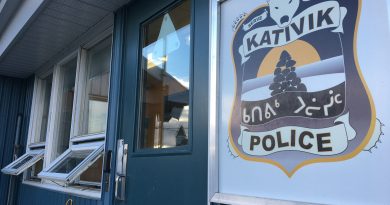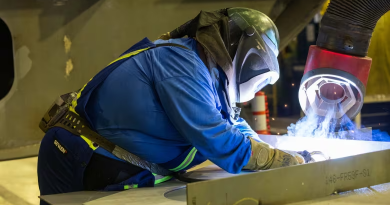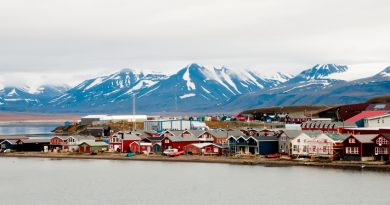Iceland, Estonia talk Arctic at Tallinn meeting

The foreign ministers of Iceland and Estonia met on Wednesday to talk everything from Nordic-Baltic relations to Arctic cooperation.
“We support the position that the Arctic must remain a region of low tensions,” Urmas Reinsalu, Estonia’s foreign minister said in a news release. “As a country close to the Arctic, it is Estonia’s interest and responsibility to ensure the sustainability of the Arctic.”
Estonia has become increasingly vocal on Arctic affairs since announcing its intention to apply for observer status on the Arctic Council last year.
The Arctic Council is an international forum made up of Canada, Denmark, Finland, Iceland, Norway, Sweden, Russia and the United States; and six Arctic Indigenous groups; the Aleut International Association, the Arctic Athabaskan Council, the Gwich’in Council International, the Inuit Circumpolar Council, the Russian Association of Indigenous Peoples of the North and the Saami Council.
Observers’ role
The council was established in 1996 to work on sustainable development and environmental protection in the North.
Currently there are 13 non-Arctic states, and 13 intergovernmental and inter-parliamentary organizations with approved Arctic Council observer status. The designation allows observation of the international forum’s work and allows the ability to contribute to the forum’s working groups.
But all decisions remain with the eight Arctic countries with the participation of the six Indigenous organizations.
Estonian engagement in Arctic
In his statement on Wednesday, Reinsalu talked up Estonia’s Arctic engagement saying Estonian polar researchers had been studying the Arctic “for years” and could make important contributions to the Arctic Council’s working groups.
Year formed: 1996 Current Chair: Iceland Arctic Council Members: Canada, Denmark (Greenland), Finland, Iceland, Norway, Sweden, Russia, United States Permanent Participants: Aleut International Association, Arctic Athabaskan Council, Gwich’in Council International, Inuit Circumpolar Council, Russian Association of Indigenous Peoples of the North, Saami Council When Estonia announced its intention to apply for observer status in November it outlined its main interests as science, economy and security. “Ensuring the sustainable development of the Arctic requires cooperation between states and extensive political support, and this should not be a task of Arctic states alone, instead, it should also include countries and international organisations close to the Arctic,” Reinsalu said at the time. “As the northernmost non-Arctic country and due to its location, Estonia is directly affected by the geopolitical developments in the Arctic, and this is why we should be included in discussions and problem-solving.” On Wednesday, Reinsalu also voiced Estonia’s support for Iceland, which currently holds the Arctic Council’s rotating two-year chairmanship, citing its efforts on highlighting the working groups’ projects and observers’ contributions to them. Write to Eilís Quinn at eilis.quinn(at)cbc.ca Canada: Better wildfire & agriculture management among recommendations from Arctic Council black carbon expert group, Eye on the Arctic Estonia: Estonia to apply for observer status within Arctic Council, Eye on the Arctic Finland: Did Finland fail as Chair of the Arctic Council?, Blog – Timo Koivurova Iceland: Arctic Council group lobs GPS-bugged capsules into Atlantic to track litter trajectories in the North, Eye on the Arctic Norway: Norway to focus on civil society, press freedom as chair of Barents Euro-Arctic Council, The Independent Barents Observer Russia: Putin, Modi work on Arctic cooperation during Russia meeting, The Independent Barents Observer Sweden: Sweden’s FM calls for more EU involvement in Arctic as country hosts EU Arctic Forum, Radio Sweden United States: Finnish and US Presidents agree on Arctic security policies, Eye on the Arctic
Iceland’s chairmanship
Related stories from around the North:



